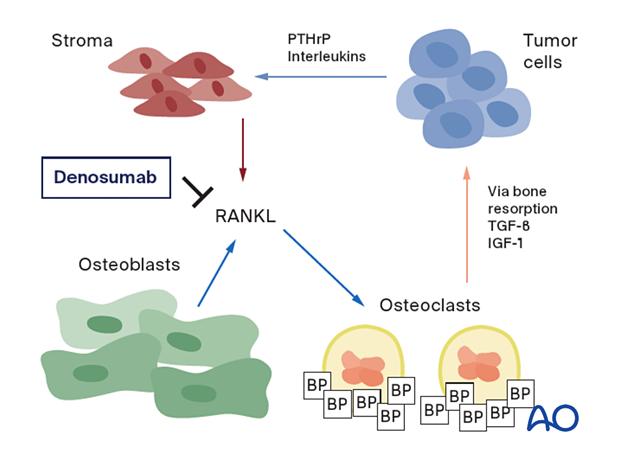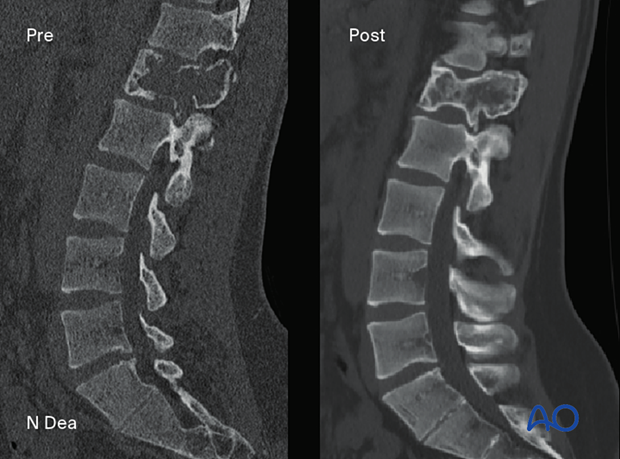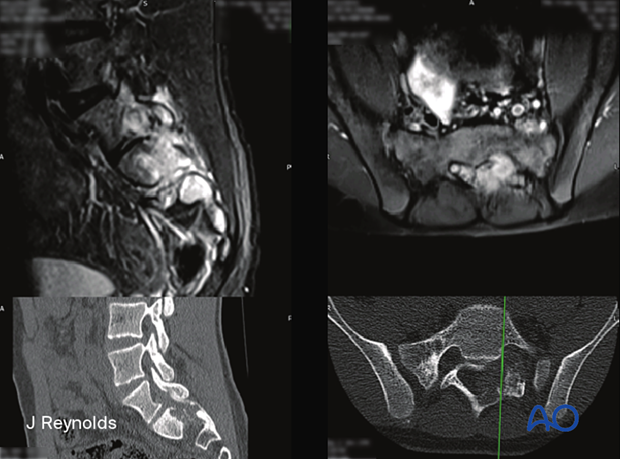Chemotherapy
1. Giant cell tumor
Giant cell tumors exhibit three major cell types:
- Spindle-shaped mesenchymal stromal cells
- Mononuclear monocytes
- Multinucleated osteoclast-like giant cells
Denosumab is a monoclonal antibody against the RANKL (receptor activator of nuclear factor kappa beta ligand), which is exhibited on the Spindle-shaped mesenchymal stroma cell of giant cell tumors.
Denosumab decreases bone turnover and giant cell reproduction by inhibiting RANKL pathways.
Denosumab is used against giant cell tumors preoperatively and isolated in nonresectable tumors.
It results in calcification of the tumor and a decrease in the tumor soft tissue component, which may facilitate surgical resection. There is a marked reduction in vascularity.
The exact duration of treatment in the neoadjuvant setting and its role as adjuvant therapy is still to be defined. Long-term usage of Denosumab can be associated with side effects.
Denosumab has been shown to have a similar effect on aggressive osteoblastomas.

These CT scans show a giant cell tumor, pre and post Denosumab treatment. Calcification of the tumor can be observed.

2. Osteoblastoma
There is no widely accepted chemotherapy treatment for osteoblastoma.
However, recent reports have shown that Denosumab confers some tumoral control, similar to the response observed in giant cell tumors described in patients with aggressive forms of this tumor.














